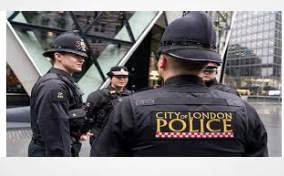|
OCM Issues Due Diligence and Application Process Checklist |
|
The New York Office of Cannabis Management (“OCM”) recently released a comprehensive document that encapsulates many of the components that the OCM reviews during the application process, and that may be of particular interest to local municipalities, including New York City Community Boards.
In the document, the OCM sets forth the information it reviews for all adult-use applicants, including retail dispensaries, on-site consumption locations, cultivation locations, and more. The Office looks specifically at nine categories of information:
1. Plans 2. Dispensary Approval 3. Store Interior 4. Outdoor Signage 5. Adult-Use Advertising and Marketing Prohibition 6. Security Plan and Storage of Cannabis 7. Security System 8. General Storage 9. Incident Reporting
1. Plans An adult-use applicant must have (i) a Site Plan; (ii) an Energy and Environmental Plan, and (iii) a Business Continuity plan, among others. Each of these plans contain different pieces of information, and all of them should be complete and comprehensive. For example, the Site Plan should include the location of the premises, the activities performed in each area of the premises, and the entrances and exits to both the property and the general premises.
2. Dispensary Approval The licensed premises of the dispensary will only be approved if the dispensary is in a location consistent with “public convenience” and “advantage standards,” as determined by the Cannabis Control Board.
As part of the approval process, the OCM and CCB look at a range of factors including, (i) a demonstrable need for such a license in the specific neighborhood; (ii) the effect of the grant of the license on pedestrian or vehicular traffic and parking in proximity to the location; (iii) the possible noise and potential nuisance level that may be a byproduct of the licensed location, and (iv) the “classes and character” of other licenses in proximity to the location and in the particular municipality or subdivision.
3. Store Interior Licensees must post inside the store, in a manner plainly visible to all customers, the following information: (i) the licensee’s physical retail dispensary license, (ii) the hours of operation, and (iii) public health and safety notifications.
4. Outdoor Signage Licensees are severely limited in what signage they can create, use, and promulgate when advertising outdoors. First and foremost, licensees are limited to two outdoor signs or placards, and these signs must be affixed to a building or a permanent structure. Thus, licensees cannot place advertisements on vehicles, trucks, arenas, stadiums, or other sports venues. Furthermore, the advertisements are limited to the following information only: (i) the licensee’s name, entity name, or “doing business as” name; (ii) dispensary address, phone number, email address and website URL; and (iii) the nature of the business.
5. Adult-Use Advertising and Marketing Prohibition All advertising and marketing campaigns must conform to the requirements prescribed in the NY cannabis law. These include ensuring that the advertisements and marketing campaigns (i) are not attractive to individuals under the age of 21, (ii) are not false or misleading, including any health claims or a representation that use of cannabis has curative or therapeutic effects, and (iii) do not include use of coupons, price reductions or customer loyalty programs. This list is far from exhaustive — for a more complete understanding of the Adult-Use Advertising and Marketing prohibitions, please contact an attorney from the Prince Lobel Cannabis Team.
6. Security Plan and Storage of Cannabis The licensee must create, implement, and maintain a security plan. Included in this security plan is a description of how the licensee is going to (i) prevent access to the licensed premises by unauthorized persons and protect the physical safety of all individuals on the premises; (ii) deter theft or loss of cannabis products; (iii) prevent loitering and ensure that only individuals engaging in legal cannabis activity on the premises of the licensee; (iv) lock all perimeter doors and windows; (v) provide for safe cash storage, handling, and transportation to financial institutions; and (vi) secure all entrances to the licensed facility to prevent unauthorized access.
7. Security System Licensees are required to have a security system at the dispensary that utilizes commercial grade equipment to prevent and detect diversion, theft, or loss. The system, at a minimum, must include: (i) video cameras that are directed at safes, vaults, sales areas, entry and exit points, and at each point-of-sale area and any other areas where cannabis products are stored, handled, transferred; (ii) a failure notification system that provides an audible, text or visual notification of any failure in the security system (e.g. an alarm or silent alarm) and (iii) a perimeter alarm that communicates with an internal designee and a third-party commercial central monitoring station when intrusion is detected.
8. General Storage Cannabis and cannabis products must be stored in a secure and locked safe, vault, or other approved equipment or location within the licensed premises, to prevent diversion, theft, or loss. They must also be stored in such a manner as to protect against physical, chemical, and microbial contamination, and deterioration of the cannabis and cannabis products.
9. Incident Reporting A licensee must notify OCM in a manner prescribed by the Office of any breach of security or other incident immediately and, in no instance, more than 24 hours following discovery of the security breach or incident.
In addition to these nine factors, OCM confirmed that as part of the application process, municipalities (and in the specific case of New York City, Community Boards) play a monumental role in the acceptance or rejection of an applicant’s license. These Community Boards and municipalities may express an opinion in support or against the granting of licenses for adult-use cannabis dispensaries and/or on-site consumption sites. The expressed opinion of the municipality will become part of the official application record upon which the OCM makes its recommendation to the Cannabis Control Board (“CCB”) to either grant or deny a license.
If you are looking to start a cannabis business in New York, or have any questions regarding New York’s cannabis laws or any of the information contained in this alert, please contact, Andrew Schriever, Doug Trokie, James K. Landau, David C. Holland, or any other member of the Prince Lobel Cannabis Team.
With thanks to Alexander Hymowitz for his work on this alert. |

















